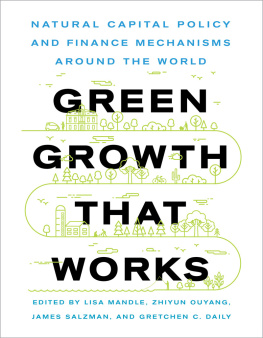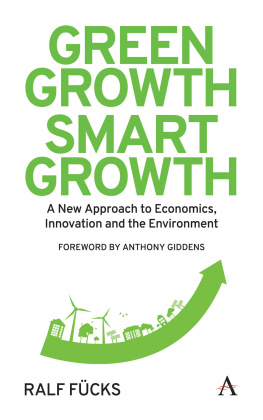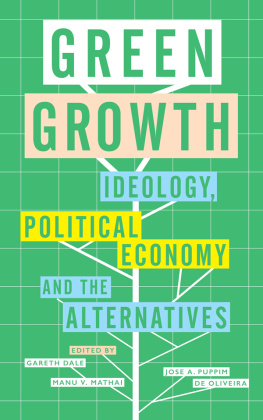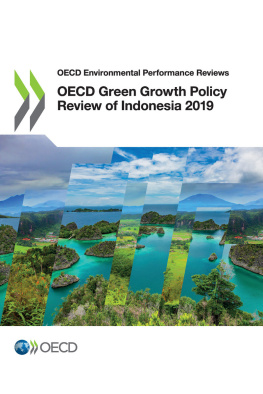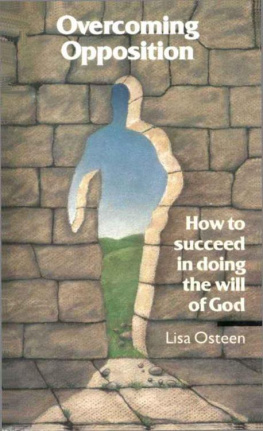Edited by Lisa Ann Mandle - Green Growth That Works
Here you can read online Edited by Lisa Ann Mandle - Green Growth That Works full text of the book (entire story) in english for free. Download pdf and epub, get meaning, cover and reviews about this ebook. year: 2019, publisher: Island Press, genre: Politics. Description of the work, (preface) as well as reviews are available. Best literature library LitArk.com created for fans of good reading and offers a wide selection of genres:
Romance novel
Science fiction
Adventure
Detective
Science
History
Home and family
Prose
Art
Politics
Computer
Non-fiction
Religion
Business
Children
Humor
Choose a favorite category and find really read worthwhile books. Enjoy immersion in the world of imagination, feel the emotions of the characters or learn something new for yourself, make an fascinating discovery.
- Book:Green Growth That Works
- Author:
- Publisher:Island Press
- Genre:
- Year:2019
- Rating:3 / 5
- Favourites:Add to favourites
- Your mark:
- 60
- 1
- 2
- 3
- 4
- 5
Green Growth That Works: summary, description and annotation
We offer to read an annotation, description, summary or preface (depends on what the author of the book "Green Growth That Works" wrote himself). If you haven't found the necessary information about the book — write in the comments, we will try to find it.
Green Growth That Works — read online for free the complete book (whole text) full work
Below is the text of the book, divided by pages. System saving the place of the last page read, allows you to conveniently read the book "Green Growth That Works" online for free, without having to search again every time where you left off. Put a bookmark, and you can go to the page where you finished reading at any time.
Font size:
Interval:
Bookmark:
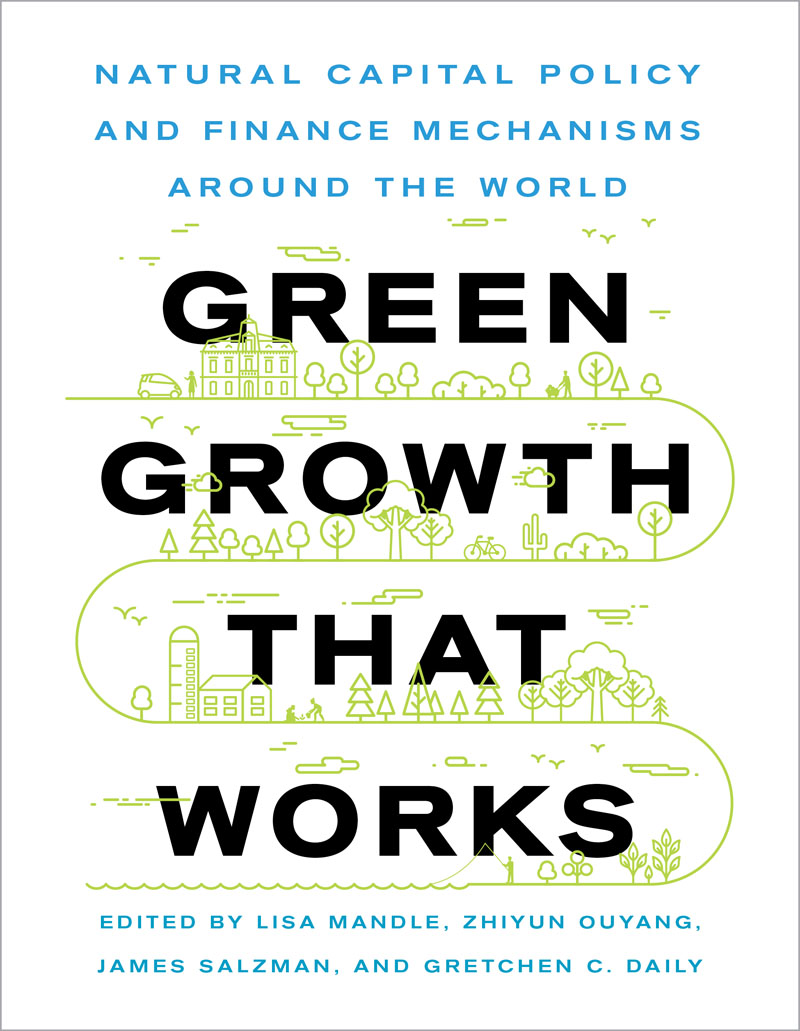
Since 1984, the nonprofit organization Island Press has been stimulating, shaping, and communicating ideas that are essential for solving environmental problems worldwide. With more than 1,000 titles in print and some 30 new releases each year, we are the nations leading publisher on environmental issues. We identify innovative thinkers and emerging trends in the environmental field. We work with world-renowned experts and authors to develop cross-disciplinary solutions to environmental challenges.
Island Press designs and executes educational campaigns, in conjunction with our authors, to communicate their critical messages in print, in person, and online using the latest technologies, innovative programs, and the media. Our goal is to reach targeted audiencesscientists, policy makers, environmental advocates, urban planners, the media, and concerned citizenswith information that can be used to create the framework for long-term ecological health and human well-being.
Island Press gratefully acknowledges major support from The Bobolink Foundation, Caldera Foundation, The Curtis and Edith Munson Foundation, The Forrest C. and Frances H. Lattner Foundation, The JPB Foundation, The Kresge Foundation, The Summit Charitable Foundation, Inc., and many other generous organizations and individuals.
The opinions expressed in this book are those of the author(s) and do not necessarily reflect the views of our supporters.

Island Press mission is to provide the best ideas and information to those seeking to understand and protect the environment and create solutions to its complex problems. Click here to get our newsletter for the latest news on authors, events, and free book giveaways.

Copyright 2019 Island Press
All rights reserved under International and Pan-American Copyright Conventions. No part of this book may be reproduced in any form or by any means without permission in writing from the publisher: Island Press, 2000 M Street, NW, Suite 650, Washington, DC 20036 No copyright claim is made in the works of Rick Bennett, employee of the United States federal government.
Library of Congress Number: 2018967529
All Island Press books are printed on environmentally responsible materials. 
Manufactured in the United States of America
10 9 8 7 6 5 4 3 2 1
Keywords: Island Press, natural capital, ecosystem services, green economy, green development, inclusive green growth, payment for ecosystem services, payment for environmental services, gross ecosystem product, environmental policy, environmental finance, conservation policy, conservation finance, sustainable development, sustainable growth, policy instrument choice, poverty alleviation, livelihood security, human development, equity, green finance, transformation
Dedicated to all the heroes reaching well beyond their own lives to help realize a bright future for people and nature on our shared planet Earth.
Lisa Mandle, Zhiyun Ouyang, James Salzman, Ian Bateman, Carl Folke, Anne D. Guerry, Cong Li, Jie Li, Shuzhuo Li, Jianguo Liu, Stephen Polasky, Mary Ruckelshaus, Bhaskar Vira, Alvaro Umaa Quesada, Weihua Xu, Hua Zheng, and Gretchen C. Daily
Growth in human population and economic activity has dramatically transformed our planet since the Industrial Revolution. While driving significant improvements in human well-being, these forms of growth also deeply eroded the natural capital embodied in Earths lands, waters, and biodiversity. Rapid economic development has lifted hundreds of millions of people out of poverty and raised the standard of living and life expectancies of many more, but the costs of this success cast a long shadow over future well-being.
Massive degradation and loss of forests, wetlands, coral reefs, grasslands, and other ecosystemsalong with their waters and speciesare creating grave risks. Severe inland and coastal flooding, sand and dust storms, extreme climate events, and unhealthy air and water threaten the security of food, water, climate, energy, health, and livelihoods. Taken together, these harms constitute a sobering counterbalance to economic growth.
Yet the world is waking up. Policymakers, development organizations, businesses, and private investors are joining civil society organizations and scientists in forging a new development model. The quest is ambitious: to improve the human condition while securing natures life-support systemsin other words, to create pathways toward inclusive green growth.
Over two decades of innovation in research and implementation demonstrate the feasibility of this ambitious yet urgent and vital goal. The challenge now is to move from ideas to action on a broader scale (Guerry et al. 2015). Doing so requires a clear focus on values and mechanisms.
Moving to inclusive green growth necessitates a rigorous understanding of the significance and values of natural capital for human well-beingtoday and for the future. Whether in the public or private sector, decision makers will need to be persuaded of the benefits from major investments in nature and nature-based solutions compared to their costs. This understanding has been advanced rapidly through scientific research (going back to Jansson et al. 1994 and Daily 1997), as well as via international efforts such as the Millennium Ecosystem Assessment (2005) and the Intergovernmental Science-Policy Platform on Biodiversity and Ecosystem Services (IPBES).
Going from ideas to action also requires creating innovative, effective policy and finance mechanisms that drive regeneration and promotion of natural capital and the provision of ecosystem service benefits (Daily and Ellison 2002). These approaches typically have deeply intertwined, dual goals of securing the well-being of both nature and people.
In this book, we put the emphasis on the natural capital dimensions underpinning inclusive green growth, highlighting the recent, rapid innovation in demonstrating the economic and national securityas well as the inclusive and ethicalcase for securing nature. And we emphasize the experience in diverse countries worldwide in implementing innovative policy and finance mechanisms. Our focus on natural capital complements other efforts around inclusive growth (de Mello and Dutz 2012), inclusive development (Teichman 2016), and green economies (Jacobs 1993).
Recognition of the value of natural capital is not new: one can find examples of wise conservation practices from societies throughout history. Yet, today, many human activities not only fail to consider natural capital but actively degrade its value. Because services from natural capital are generally public goods and not reflected in market prices, their loss is often unrecognizedor at least uncheckeduntil the consequences become too large to ignore. A famous case is China, where massive deforestation in the upper reaches of the Yangtze River led to devastating flooding in 1998. In 1999, China began to launch what is still the largest payment for ecosystem services program in the worldthe Sloping Land Conversion Programwith dual goals of flood mitigation and poverty alleviation (Liu et al 2018).
Next pageFont size:
Interval:
Bookmark:
Similar books «Green Growth That Works»
Look at similar books to Green Growth That Works. We have selected literature similar in name and meaning in the hope of providing readers with more options to find new, interesting, not yet read works.
Discussion, reviews of the book Green Growth That Works and just readers' own opinions. Leave your comments, write what you think about the work, its meaning or the main characters. Specify what exactly you liked and what you didn't like, and why you think so.

